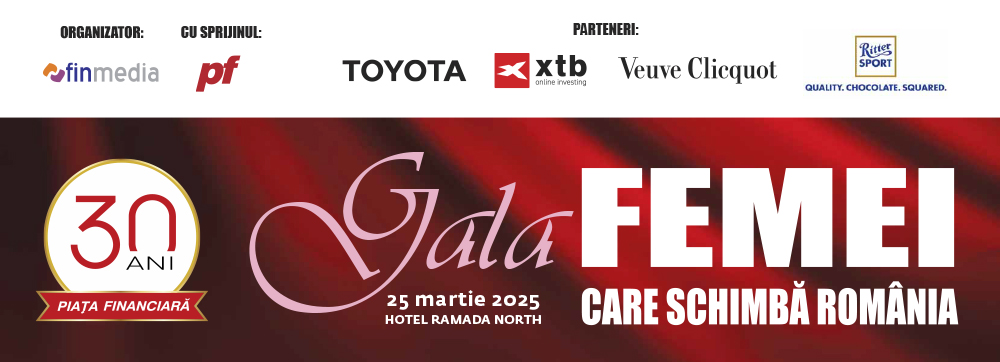The pharmaceutical sector is highly regulated. Given the important consequences that consumption of medicines may have on human health, Romania has implemented specific rules regarding advertising such products.
While there are many ways in which the public is informed about the characteristics of medicines, not all of them constitute advertising. For example, under Romanian law labelling, non-promotional correspondence to answer specific questions regarding medicines, general information on human health that does not refer to medicines, informative notices and materials relating to, for example, packaging changes, adverse reaction warnings that are part of general drug administration precautions, trade catalogues and price lists, provided that they do not include any promotional statements, are not deemed advertising. This article discusses what is deemed advertising under Romanian law.
Advertising constitutes any form of organized activity that aims to inform and any form of promotion intended to encourage the prescription, distribution, sale, administration, recommendation or use of one or more medicines for human use.
In Romania, there are two types of advertisements for medicines for human consumption: advertisements for the lay public and advertisements for professionals who have the right to market or prescribe medicines (doctors).
Advertising for professionals can also take the form of visits to professionals by pharmaceutical companies’ representatives, providing samples, stimulating the prescription or distribution of medicines by offering, promising, or granting advantages in money or in kind or sponsoring meetings between doctors, including sponsorship of scientific congresses.
- Legal framework for medicines advertising
Advertising of medicines for human consumption is regulated by law and secondary legislation. Law no. 95/2006 on healthcare reform (“Law 95/2006”) is the main piece of legislation in the field. It designates the National Agency of Medicines and Medical Devices from Romania (“ANMDMR”) to take appropriate measures for implementing the provisions of the Law.
In 2015, the Ministry of Health adopted norms for evaluating advertising of medicines for human consumption through Order 194/2015 regarding the approval of the Norms for evaluating and approving advertising for medicinal products for human use (“Order 194/2015”). Order 194/2005 superseded previous rules enacted in 2015 by the Scientific Council of the ANMDMR.
Also in 2015, the Scientific Council of ANMDMR issued specific rules regarding the co-payment system of patients, that also target medicines advertising.
- The principles of advertising medicines for human consumption
Advertising of medicines for human consumption is allowed if:
- the advertised medicines are authorized to be placed on the market, according to the law;
- all the information in the advertising materials is included in the summary of the product characteristics;
- advertisements are objective and complete, encouraging rational medicine consumption and enabling the user to form their own opinion on the therapeutic value of the respective medicine.
Advertising of medicines for human consumption is generally forbidden if it is deceitful. This includes the need for objectivity in the presentation of the medicine, the interdiction for exaggeration of its therapeutic qualities and backing up all affirmations with scientific evidence.
Also, when advertising medicines, respect for human and personal dignity must be preserved, and no discrimination must be made based on race, sex, language, origin, social origin, ethnic identity, or nationality.
There can be no advertising to the general public if:
- it is for medicines that can only be purchased based on a medical prescription;
- it is for medicines that contain narcotic or psychotropic substances;
- it is for medicines prescribed and released through the health insurance system, except for vaccinations performed by the Ministry of Health;
- it would be achieved by distributing promotional samples to the population;
- it is exclusively or predominantly addressed to children.
In relation to advertising for medicines directed towards professionals:
- any form of advertising must be in accordance with the provisions of the approved summary of product characteristics, as well as with the terms of the marketing authorization;
- any information not included in the marketing authorization may only be provided in response to a properly documented subpoena from a healthcare professional;
- medicines can be advertised in the context of professional events organized for doctors and for other professionals who are authorised to prescribe medicines;
- promotional items of a small value may be offered;
- samples may be offered, in limited quantity and upon request from the professionals; however, it is prohibited to provide, offer or promise any gift, pecuniary advantage or benefit in kind to health professionals for the purpose of prescribing, purchasing, supplying, selling or administering medicine.
- Prior authorisation of advertising materials
Advertising materials for medicines that can be released without prescription must have prior approval from the ANMDMR.
Starting from July 10, 2023, the advertising materials submitted for ANMDMR analysis can be uploaded to an online platform.
Advertising materials for medicines that can be released only with prescription will be analysed prior to launch, through surveys or as a result of a complaint.
Internet advertising must always be pre-approved by the ANMDMR. It is forbidden to advertise medicines for human use by e-mail or mobile phone (SMS) or through social networks.
- The liability for advertising
The holders of marketing authorisations for placing medicines on the market are liable for the lawfulness of the advertising of their products, even when they subcontract advertising to third parties.
Producers, holders of marketing authorizations or their representatives in Romania, as well as wholesale and retail distributors of medicines, have the obligation to declare all sponsorship activities, as well as any other expenses incurred for doctors, medical assistants, organizations professionals, patient organizations and any other type of organizations that have activities in the field of health, under the conditions established by order of the Minister of Health.
- Requirements for advertising materials
Any advertising material intended for the general public:
- must be designed in such a way that it is clear that the message is of an advertising nature and that the product is clearly identified as a medicine;
- must include at least the following information: (i) the name of the medicine, as well as the common name if the medicine contains only one active substance; (ii) the necessary information for the correct use of the medicine; (iii) an express, legible invitation to carefully read the instructions in the leaflet or on the packaging, formulated as follows: „This medicine can be dispensed without a medical prescription. It is recommended to carefully read the leaflet or the information on the packaging. If unpleasant manifestations appear, contact your doctor or pharmacist.”; in audiovisual advertising, the audio message „This is a medicine. Read the leaflet carefully.” must be included.
If the advertisement is a reminder (i.e., an abridged version of the advertisement), it is accepted to only include the name of the medicine or the international common name, if it exists, or the brand name of the medicine.
Advertising materials cannot:
- suggest that consultation from a medic is not necessary, especially by offering remote diagnosis or treatment suggestions;
- suggest that the effect of the treatment with the respective medicine is guaranteed, is not accompanied by adverse reactions or that the effect is better or equivalent to that of another treatment or medicine;
- suggest that the subject’s health can be improved by using the respective medicine;
- suggest that the subject’s health may be affected if the medicine is not used;
- be addressed exclusively or especially children;
- refer to a recommendation of scientists, health professionals or people who are not part of these categories, but whose celebrity may encourage the consumption of medicines;
- suggest that the medicine is a food, cosmetic or other consumer product;
- suggest that the safety or effectiveness of the medicine is due to the fact that it is natural;
- be able, through a detailed description or representation of a case, to lead to an erroneous self-diagnosis;
- offer, in inadequate, alarming or misleading terms, assurances regarding healing;
- use, in inappropriate, alarming or misleading terms, visual representations of changes in the human body caused by diseases or injuries or actions of drugs on the human body or a part of it.
Advertising materials addressed to professionals must include:
- essential information compatible with the summary of product characteristics;
- the classification for releasing the medicine;
- the date upon which the advertising material was last updated – all such materials must be kept up-to-date.
For reminders, it can be acceptable for only the name of the medicine to be included or the international common name, if it exists, or the brand.
- Sanctions for non-compliance
Non-compliant advertising materials can be withdrawn from publication or forbidden from publication.
The ANMDMR may publish the decisions concerning deceitful advertising materials.
Also, the ANMDMR may apply fines for offences in the field of advertising ranging from RON 10,000 (approximately EUR 2,000) to RON 30,000 (approximately EUR 6,000).
- Final remarks
In its legislation regarding medicines advertising, Romania is in line with other Member States of the European Union, having transposed Directive 2001/83/EC of the European Parliament and of the Council of November 6, 2001 on the Community code relating to medicinal products for human use.
However, some of the provisions of that directive were not implemented into local legislation. For example, the prohibition to mention in advertising to the general public of therapeutic indications such as: tuberculosis, sexually transmitted diseases, other serious infectious diseases, cancer and other tumoral diseases, chronic insomnia, diabetes, and other metabolic illnesses was not expressly implemented. This aspect may have to be considered by national authorisation holders when expanding their business beyond Romanian borders, since the provisions in the directive were not phrased as optional.
The ANMDMR is active in supervising advertising. At the same time, players in the Romanian market seem to be prepared in relation to what is expected of them. According to its activity report for 2021, the ANMDMR approved 633 new advertising materials, re-approved 1047, and rejected 18. The figures seem consistent with previous years, as in 2020 608 new advertising materials were approved, 927 were re-approved and 22 were rejected.
In terms of advertising complaints, it seems in 2021 it only received one complaint for aggressive advertising.






COMMENTS